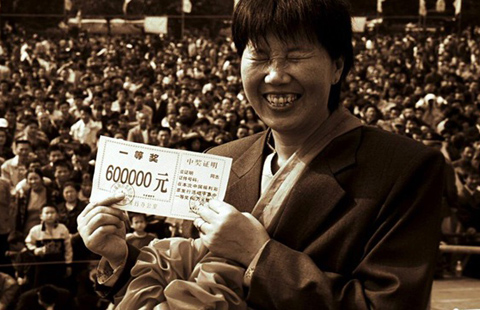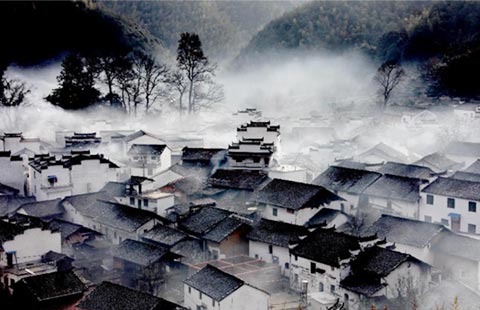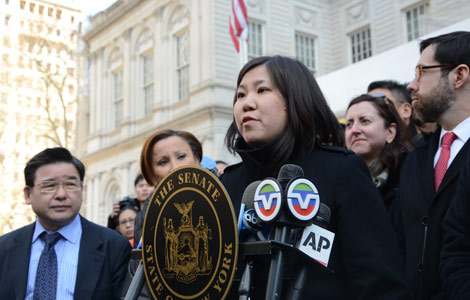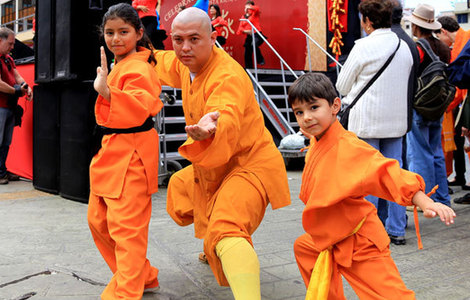Controversial Yunnan official under probe
Updated: 2015-03-16 07:34
By Zhao Lei(China Daily)
|
||||||||
Qiu He was known for imposing heavy-handed policies regarding work style and infrastructure
A once-controversial leader of Southwest China's Yunnan province has become the latest target of the anti-graft campaign, the top discipline watchdog said on Sunday.
Qiu He, deputy head of the Yunnan Provincial Committee of the Communist Party of China, is now being investigated on suspicion of seriously violating Party discipline and national laws, according to a statement published by the CPC Central Commission for Discipline Inspection.
The statement did not give more details about Qiu's investigation, but Chinese media quoted sources close to anti-corruption agencies as reporting that he is suspected of being involved in corruption in urban development.
He was reported to have been taken from a hotel in Beijing by anti-corruption inspectors after attending the final meeting of the annual session of the National People's Congress on Sunday morning.
Xu Jianyi, chairman of major Chinese automaker FAW Group, has also been put under investigation, the top anti-graft body said on Sunday.
Xu, who is Party chief of the group, is suspected of seriously violating discipline and breaking the law.
The move echoed the latest anti-corruption pledge that Premier Li Keqiang made at his annual news conference, also on Sunday morning.
Li said the Party and the Chinese government are committed to combating corruption and upholding integrity and that the administrative reform will be deepened to uproot the "breathing space for corruption".
As an alternate member of the CPC Central Committee, Qiu is the fourth provincial-level official in Yunnan to be placed under investigation since November 2012 when Xi Jinping took the Party's top office.
The previous three were Bai Enpei, former Party chief of the province, Shen Peiping, a deputy provincial governor and Zhang Tianxin, Party chief of the provincial capital Kunming.
Qiu, 58, started his career as an agricultural researcher at the Jiangsu Academy of Agricultural Sciences in 1982 after graduating from Nanjing Agricultural University.
Following eight years in the academy, Qiu was named a deputy section chief in the Jiangsu provincial science committee, becoming a government official. In 1996, he was promoted to vice-mayor of Suqian, a small city in Jiangsu that turned into a demonstration of his ironhanded measures in improving officials' work style and developing urban infrastructure.
He became well known across the country in 2004 when Southern Weekly, a popular newspaper in China, published a cover story about the governance of Qiu, who was then Party chief of Suqian.
The ensuing media coverage on Qiu's relentless efforts in punishing slack officials and invigorating the local economy brought him a huge reputation as well as controversies that claimed he overused his power and sold out State-owned assets in the city.
However, such controversies did not stop him from a succession of promotions. In 2006, Qiu was appointed deputy governor of Jiangsu. Nearly two years later, he became Party chief of Kunming, where he continued to impose his heavy-handed policies on officials.
Despite Qiu leaving the city government and being named deputy Party chief in late 2011, some people accuse him of executing forcible demolition to make way for his development plan.
zhaolei@chinadaily.com.cn
(China Daily 03/16/2015 page5)

 The CeBIT trade fair opens in Germany
The CeBIT trade fair opens in Germany
 Now and then: Lottery dream fading
Now and then: Lottery dream fading
 Braving the snow for greener pastures
Braving the snow for greener pastures
 Special: Preserve the past to live the future
Special: Preserve the past to live the future
 Push for Lunar New Year school holiday
Push for Lunar New Year school holiday
 Bruce Lee's legacy promotes Kungfu in LatAm
Bruce Lee's legacy promotes Kungfu in LatAm
 Germany's Black Forest: a popular holiday destination
Germany's Black Forest: a popular holiday destination
 Sea of color at Shenzhen race
Sea of color at Shenzhen race
Most Viewed
Editor's Picks

|

|

|

|

|

|
Today's Top News
Mutual respect, interests key to US relations
US targets vocational schools in visa crackdown
Washington pitched to tourist
China, Myanmar investigate deadly bombing in Yunnan: FM
Foreign investment restrictions
to be cut
Taking the fight to the terrorists
Action to be taken if deadly bombing happens again
New bureau set to boost graft fight
US Weekly

|

|







